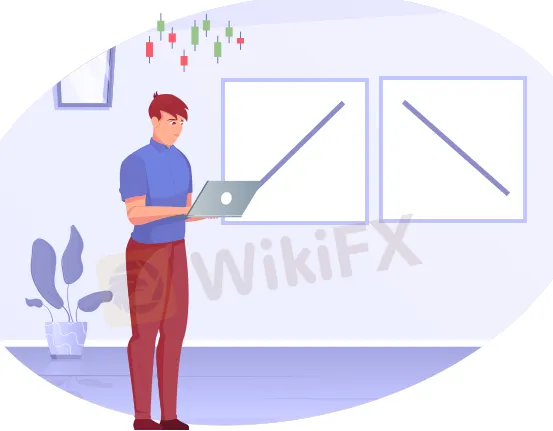Opofinance Review 2022 from qocsuing's blog
Opofinance Review 2022
Opofinance manages to provide access to both MetaTrader 4 and MetaTrader 5 and offers relatively decent trading conditions. However, this is an offshore broker who claims to be regulated by different financial authorities without actually having any sort of formal license. This makes the broker dangerous and a likely scam – so we would suggest that you do not trade with them and choose a legitimate broker instead.To get more news about opofinance review, you can visit wikifx.com official website.
When we checked the register of the FSA of Seychelles, we did not find a company with that name – which means that Opofinance is not actually authorized by this financial authority. On the other hand, the regulatory body of St. Vincent and the Grenadines, SVGFSA, does not regulate forex brokers and does not impose any laws in the sphere of forex trading – which means that no broker could be regulated in this country. Finally, the Financial Commission is not a regulator we are familiar with – and even Opofinance stated that this is just an international organization dealing with the resolution of disputes. This means that the broker in question is not authorized to offer services by any financial authority – which makes them a danger to your investment.

What are the risks of dealing with unregulated brokers?
Anyone who deals with unregulated brokers like the one we are currently reviewing is taking a major risk with their money. These companies offer online trading services without any sort of a license and without any supervision on the part of the authorities – which makes them not only unreliable but dangerous for they are completely unaccountable for their actions. Most such entities are nothing but scammers who only seek to deceive their clients and swindle them out of their money. But even if such a company is not running a scam, it still cannot be trusted – for example, it could go under due to mismanagement, in which case its clients will lose their entire investment.
To avoid any such problems, turn to a legit and reliable broker that does everything by the book, and can provide you with significant assurances for the security of your funds.
Regulatory framework in the US
The US forex market is among the most heavily regulated ones. Brokers operating in the country should be members of the National Futures Association (NFA) and also be registered with the Commodity Futures Trading Commission (CFTC). They are required to meet a long list of requirements in order to make sure that these companies are transparent, well-capitalized and treat their clients fairly.
First of all, US brokers are subject to one of the highest capital requirements for financial services providers worldwide – they must maintain net capital of at least $20 million. Also, like all properly licensed brokers, those regulated in the US should keep clients’ funds segregated from their own operational funds to ensure that no commingling takes place.
Similarly to the situation in other countries, forex brokers in the USA face restrictions in terms of leverage – they are allowed to provide leverage up to 1:50 for majors and up to 1:20 for minor currencies. The leverage restrictions are introduced due to investor protection concerns.
Another restriction US brokers are subjected to is the so-called FIFO (first in, first out) rule which prevents traders from going long and short on the same pair at the same time. Simply put, If you open more than one position on a currency pair, you must close the first before closing the second one.This also means that hedging is not allowed.
Finally, forex brokers legally operating in the States have to meet certain reporting requirements. In addition to the record-keeping and reporting guidelines introduced by the CFTC, they are required to provide their clients with access to certain transaction execution data (under the NFA’s rules on disclosure of transaction data).
OFFSHORE BROKERS’ DIRTY TRICKS
Most unregulated brokers are known to engage in fraudulent practices, but they usually have a similar approach. Once you get acquainted with it, you can easily recognize the scammers’ dirty tricks and protect yourself. So, here are two of the most popular scam broker techniques:
Bonuses with high trading volume requirements
Trading bonuses are inseparable part of the offering of most scam brokers. Attractive as such promotions may seem at first sight, they always come with strings attached – a minimum turnover requirement you have to meet in order to be able to withdraw the bonus funds. Usually, however, the trading volume requirements are so high that even seasoned traders will have difficulties in achieving them. But the most serious problem is that once your account is credited with a bonus, it is no longer possible to distinguish which money is made from the bonus funds and which are derived from the ones you have deposited.

The Wall